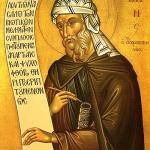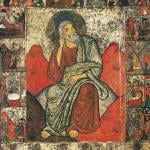Washington D.C., Apr 25, 2015 / 02:59 pm (CNA/EWTN News).- A diverse crowd of thousands of people from across the U.S. gathered in front of the US Capitol to speak and stand in defense of marriage on Saturday. “We have too long taken for granted the gift of marriage as the union of one man and one woman,” Archbishop Joseph Kurtz of Louisville, Ky. and President of the US Conference of Catholic Bishops told CNA. The Archbishop cautioned that society’s view of seeing marriage only as “an adult friendship” looses sight of the “sacrificial love” and “one flesh union that Jesus Himself spoke of” that form the basis for marriage as an institution. “We have not cultivated the basis for sacrificial love but have, in a sense, fallen victims of a culture that tends to talk about adult choices and options,” he explained. “I think we’re returning now very much to our roots, saying that at the basis of a good, healthy civilization and society is a family, and at the basis of that family is a sacrificial love” The Archbishop gave an address at the rally before the third annual March for Marriage, joining other Christian and political leaders including Pastor Jim Garlow of Skyline Church in San Diego and Ryan Dobson, son of Dr. James Dobson, and Rev. Senator Ruben Diaz of New York City in offering a public defense of marriage. Speeches were given in both Spanish and English and translated so all participants could understand each of the speakers’ testimonies. The march was held in commemoration of two 2013 Supreme Court cases concerning the federal definition of marriage and states' ability to define marriage as a union between a man and a woman. The 2013 decisions stated that the federal government should not enforce its own definition of marriage as the union of a man and a woman, but instead should respect the definitions offered by each state. On April 28, the Supreme Court will again address arguments about the nature of marriage, that will challenge bans on same-sex “marriage” on the grounds of the 14th amendment, claiming that respecting the traditional definition of marriage violates civil rights. A ruling is expected in June 2015. Washington, D.C.- A diverse crowd of thousands of people from across the U.S. gathered in front of the US Capitol to speak and stand in defense of marriage on Saturday. “We have too long taken for granted the gift of marriage as the union of one man and one woman,” Archbishop Joseph Kurtz of Louisville, Ky. and President of the US Conference of Catholic Bishops told CNA. The Archbishop cautioned that society’s view of seeing marriage only as “an adult friendship” looses sight of the “sacrificial love” and “one flesh union that Jesus Himself spoke of” that form the basis for marriage as an institution. “We have not cultivated the basis for sacrificial love but have, in a sense, fallen victims of a culture that tends to talk about adult choices and options,” he explained. “I think we’re returning now very much to our roots, saying that at the basis of a good, healthy civilization and society is a family, and at the basis of that family is a sacrificial love” The Archbishop gave an address at the rally before the third annual March for Marriage, joining other Christian and political leaders including Pastor Jim Garlow of Skyline Church in San Diego and Ryan Dobson, son of Dr. James Dobson, and Rev. Senator Ruben Diaz of New York City in offering a public defense of marriage. Speeches were given in both Spanish and English and translated so all participants could understand each of the speakers’ testimonies. The march was held in commemoration of two 2013 Supreme Court cases concerning the federal definition of marriage and states' ability to define marriage as a union between a man and a woman. The 2013 decisions stated that the federal government should not enforce its own definition of marriage as the union of a man and a woman, but instead should respect the definitions offered by each state. On April 28, the Supreme Court will again address arguments about the nature of marriage, that will challenge bans on same-sex “marriage” on the grounds of the 14th amendment, claiming that respecting the traditional definition of marriage violates civil rights. A ruling is expected in June 2015. Read more















